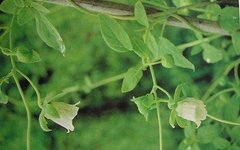Author: Liao Chuxin, Chief Pharmacist, Pharmacy Department, Zhongshan People’s Hospital
Editor: Fu Yongjin, Chief Pharmacist, Affiliated Guangzhou Red Cross Hospital of Jinan University
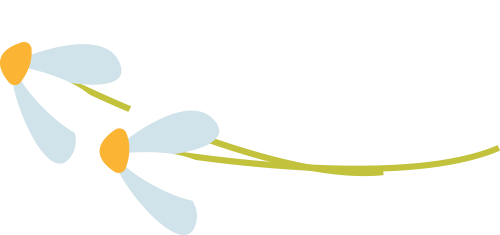
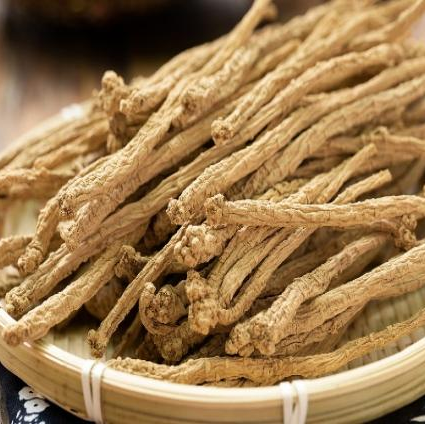

Dang Shen (Codonopsis pilosula)
Dang Shen is the dried root of the plants Codonopsis pilosula, Codonopsis tangshen, or Codonopsis pilosula var. modesta. Codonopsis pilosula and Codonopsis tangshen are mainly produced in Gansu and Sichuan; Codonopsis pilosula var. modesta is mainly produced in Sichuan, Hubei, and Shaanxi. It is harvested in autumn, cleaned, and dried. It is cut into thick slices, with the best quality being soft, moist, and sweet.
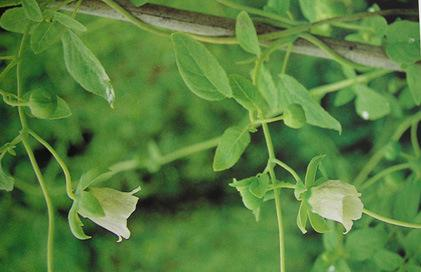
Preparation
Take slices of Dang Shen and stir-fry with rice until the surface turns deep yellow, then remove the rice and let it cool.
Properties and Channels
Sweet, neutral. Enters the Spleen and Lung meridians.
Functions and Indications
Strengthens the Spleen and Lung, nourishes blood and generates fluids. Used for Spleen and Lung Qi deficiency, poor appetite, fatigue, cough with shortness of breath, insufficient Qi and blood, pale complexion, palpitations, shortness of breath, thirst due to fluid damage, and internal heat causing thirst.
Dosage
9-30g
Compatibility Applications
1. Dang Shen with Bai Zhu (Atractylodes macrocephala)
Dang Shen is sweet and neutral, excels at tonifying the Spleen and nourishing the stomach, strengthening the middle Qi, and has strong Qi replenishing properties; Bai Zhu is sweet, warm, and slightly bitter, good at tonifying the Spleen and stomach, drying dampness, and transforming turbidity. The combination of these two herbs enhances the effects of tonifying Qi, strengthening the Spleen, and drying dampness, suitable for Spleen Qi deficiency leading to poor appetite, loose stools, and vomiting.
2. Dang Shen with Huang Qi (Astragalus membranaceus)
Dang Shen excels at strengthening the Spleen and benefiting Qi, while Huang Qi is good at benefiting Qi and raising Yang. The combination enhances the effects of tonifying the Spleen and Lung and uplifting the middle Yang, suitable for Lung and Spleen Qi deficiency, shortness of breath, fatigue, poor appetite, and sinking Qi.
3. Dang Shen with Dang Gui (Angelica sinensis)
Dang Shen excels at benefiting Qi and nourishing blood, while Dang Gui is good at nourishing blood and regulating menstruation. The combination enhances the effects of tonifying Qi and blood, suitable for internal injuries with insufficient Qi and blood, such as dizziness, fatigue, shortness of breath, and lethargy.
4. Dang Shen with Mai Dong (Ophiopogon japonicus)
Dang Shen is sweet and neutral, tonifying the Spleen and Lung, generating fluids and nourishing blood; Mai Dong is sweet and slightly cold, nourishing Yin, moistening the Lung, and benefiting the stomach. The combination enhances the effects of tonifying Qi and generating fluids, suitable for heat injuring Qi and Yin, severe fluid depletion, and heart deficiency with weak pulse.
5. Dang Shen with Shu Di Huang (Rehmannia glutinosa)
Dang Shen is sweet and neutral, excels at tonifying the Spleen and stomach, generating essence and blood; Shu Di Huang is sweet and slightly warm, good at nourishing blood, enriching Yin, and filling the marrow. The combination enhances the effects of tonifying Qi and blood, suitable for dual deficiency of Qi and blood leading to pale complexion, dizziness, palpitations, and weakness.
Identification Applications
Dang Shen vs. Ming Dang Shen Both have a sweet taste and enter the Spleen and Lung meridians, both can tonify the Spleen and Lung. However, Dang Shen is sweet and neutral, primarily entering the Spleen and Lung meridians, excelling at tonifying the middle and benefiting Qi, treating Spleen and Lung weakness, shortness of breath, palpitations, poor appetite, loose stools, cough, and internal heat causing thirst; it also has the effect of tonifying Qi and nourishing blood, treating dual deficiency of Qi and blood, pale complexion, dizziness, palpitations, and weakness. Ming Dang Shen has a slightly bitter taste and is slightly cold, primarily entering the Lung and Spleen meridians, good at moistening the Lung, transforming phlegm, nourishing Yin, and regulating the stomach, treating Lung heat cough, vomiting, poor appetite, and dry mouth; Ming Dang Shen also enters the Liver meridian, has the effect of nourishing Yin, calming the Liver, and clearing heat, suitable for treating Liver Yin deficiency and Liver Yang rising causing red eyes and dizziness; Ming Dang Shen also has detoxifying effects, suitable for treating Yangmei sore toxins or carbuncles.
Dang Shen vs. Ren Shen (Panax ginseng) Both have a sweet taste, enter the Spleen and Lung meridians, and have effects of tonifying Qi, nourishing blood, and generating fluids, suitable for Spleen and Lung Qi deficiency, Qi and fluid damage, and dual deficiency of Qi and blood, leading to pale complexion. However, Dang Shen has a milder effect, better for those with a slower disease progression and lighter deficiency; Ren Shen has a stronger tonifying effect, better for those with acute disease and severe deficiency. In critical conditions with Qi deficiency leading to collapse, only Ren Shen can rescue the collapse; for heart Qi deficiency and kidney Qi deficiency leading to dementia, impotence, and diabetes, Ren Shen is necessary, not suitable for Dang Shen; for Spleen and Lung Qi deficiency, Qi and fluid damage, and dual deficiency of Qi and blood, Dang Shen’s effects are similar to Ren Shen and can be used as a substitute, but the dosage should be larger.
Chemical Components
The main components of Dang Shen are Dang Shen polysaccharides, and it also contains phytosterols, terpenes, phenolic acids, alkaloids, coumarins, phosphates, and volatile oils. The polysaccharides are the main pharmacological active components.
Precautions
Should not be used with Li Lu (Veratrum) together.
Herbal Summary
1. “Bencao Congxin” states: “Tonifies the middle, benefits Qi, harmonizes the Spleen and stomach, and alleviates thirst.”
2. “Yaoxing Jiyao” states: “Can tonify the Spleen and Lung, benefit Qi, and generate fluids.”
3. “Bencao Zhengyi” states: “Can tonify the Spleen, nourish the stomach, moisten the Lung, generate fluids, and strengthen the middle Qi… strengthens the Spleen without causing dryness, nourishes the stomach Yin without stagnation, moistens the Lung without causing cold, nourishes blood without being overly rich.”
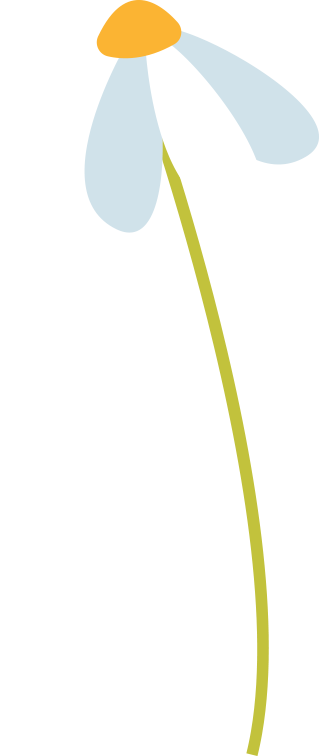
Examples of Medicinal Formulations
medicine

1. Xiao Chai Hu Granules (2015 Edition)
Ingredients: Chai Hu (Bupleurum), Huang Qi (Astragalus), Dang Shen (Codonopsis), Da Zao (Jujube), Sheng Jiang (Ginger), Ban Xia (Pinellia), Gan Cao (Licorice).
Functions and Indications: Releases the exterior, disperses heat, and soothes the Liver and stomach. Used for exterior pathogenic diseases, Shaoyang syndrome, with symptoms of alternating chills and fever, fullness in the chest and flanks, poor appetite, irritability, nausea, and bitter mouth with dry throat.
2. Shen Su Wan (2015 Edition)
Ingredients: Zi Su Ye (Perilla leaf), Ge Gen (Pueraria), Qian Hu (Peucedanum), Ban Xia (Pinellia), Jie Geng (Platycodon), Chen Pi (Citrus peel), Zhi Ke (Bitter orange), Dang Shen (Codonopsis), Fu Ling (Poria), Mu Xiang (Aucklandia), Gan Cao (Licorice).
Functions and Indications: Benefits Qi, releases the exterior, disperses wind and cold, resolves phlegm, and stops cough. Suitable for those with physical weakness and catching wind-cold, with symptoms of chills and fever, headache, nasal congestion, cough with phlegm, chest tightness, nausea, and fatigue.
-END-
Some images in this article are sourced from the internet for public welfare dissemination. Thanks to the authors of the images; if there is any infringement, please contact us for removal.

This article is an original work of “PSM Yao Dun Gong Yi”. For reprints, please leave a message.
Reviewed by: Liu Ruifeng, Chief Pharmacist, Pharmacy Department, Zhongshan People’s Hospital

References
[1] “Pharmacopoeia of the People’s Republic of China, Clinical Medication Guidelines” 2015 Edition, Chinese Herbal Pieces Volume
[2] “Chinese Clinical Drug Dictionary”, Chinese Herbal Pieces Volume


Searchfor articles related to Dang Shen

